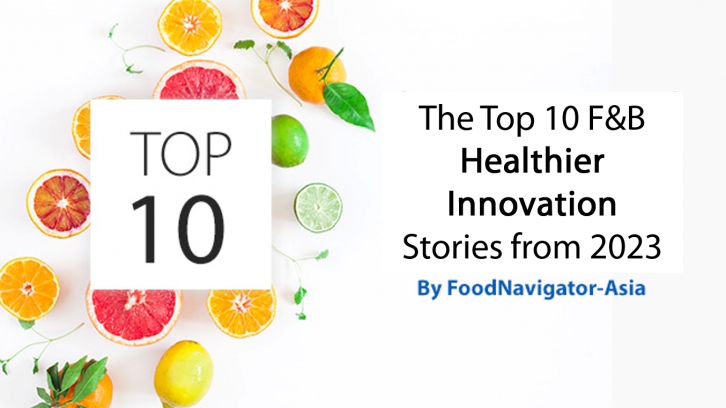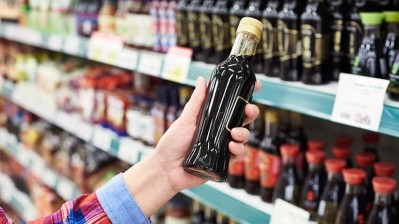Better-for-you bid: The Top 10 most-read healthier innovation stories in 2023

More than a ‘glorified TV dinner’: Australia’s The Mad Foodies translates research into low-carb, high-protein RTE meals
Australia-based brand The Mad Foodies has highligted aims to satiate growing demand for ready meals that are not only convenient and tasty, but also infused with science-backed nutritional benefits.
Years of extensive research by Commonwealth Scientific and Industrial Research Organisation (CSIRO), Australia’s national science agency, has led to the development of the CSIRO Low-Carb Diet, an evidence-based eating plan that is lower in carbohydrates, and higher in protein and healthy fats.
The findings were published in a book series that serve as a self-guide — including a range of recipes and meal suggestions — for consumers to learn how to implement the Low-Carb Diet in their daily lives.
“While the CSIRO Low-Carb Diet has been clinically proven to be highly effective in sustaining long-term weight loss and blood glucose control, there remained a gap in the market for those wanting a healthy eating option without having to cook from scratch,” Xenia Cleanthous, senior experimental scientist and project lead for the CSIRO Pre-prepared Meals Programme, told FoodNavigator-Asia.
Too much sugar focus: ‘More measures’ needed for Singapore’s Nutri-Grade system to improve consumer diets – study
A study conducted by Singaporean researchers on the government’s Nutri-Grade front-of-package (FOP) beverage labelling scheme has concluded that more work needs to be done for it to make a positive impact on consumer dietary and purchasing choices.
Singapore first announced the Nutri-Grade labelling scheme for sugar-sweetened pre-packaged beverages back in 2020, and this was finally officially enforced in the country in December 2022 after various delays attributed to COVID-19.
The scheme grades beverages from A (healthiest) to D (least healthy) in terms of sugar and saturated fat levels.
Researchers at the Duke-NUS Medical School conducted a randomised trial earlier this year involving 138 participants to examine the impacts of Nutri-Grade implementation on consumer purchasing choices, via an experimental online grocery store platform NUSMart in collaboration with local grocery retailer FairPrice, which found that although the FOP labelling system did help to encourage consumers to choose beverages with higher ratings, this was not quite so clear in terms of helping them to improve health and dietary choices.
‘Healthier and more experimental’: Indian brewery Bira 91 lifts the lid on consumer trends guiding innovation
Delhi-headquartered brewery Bira 91 has detailed how consumer demands for ‘healthier and more experimental’ products are guiding its innovation strategy, while also revealing its plans for a ‘premium’ Indian beer.
It received a funding of USD$10mn from Japan’s MUFG bank and USD$70mn from brewery giant Kirin earlier this year, which the firm said was to be channelled towards expanding its production capacity and distribution networks domestically and globally.
Its founder and CEO, Ankur Jain, said that its partnership with Kirin extends beyond funding to capitalise on Kirin’s industry expertise to 'premiumise Indian beer through innovation'.
Jain highlighted a slew of Bira 91’s product innovations were guided by a growing demand for healthier beverage options; the rising interest in craft and artisanal products; and the importance of sustainability in today’s market.
Australia’s All G Foods scales up for debut of precision fermented proteins in Singapore by end-2024
Sydney-based precision fermentation firm All G Foods highlighted earlier this year that it would be doubling down on R&D and consumer insights research to complete its first finished product, as it sets sights on the APAC, Middle East and US markets.
With the world’s population projected to reach nearly 10bn by 2050, the planet 'simply does not have the resource'” to provide food for all its human inhabitants, opined Roman Buckow, Chief Technology Officer of All G Foods.
“We saw an opportunity to take the best that nature has to offer — in terms of cow’s protein — and complement it with science and cutting-edge technology to develop cultured dairy proteins via precision fermentation. The goal is to bring high-quality and tasty Australian-made dairy products to local and global consumers,” Buckow told FoodNavigator-Asia.
Precision fermentation adds value to food supply chain, not competition – Perfect Day
Perfect Day stated that it would be teaming up with big players like Nestle and Unilever earlier this year to broaden the applications of its whey protein, while leading new innovations through precision fermentation.
Striking while the iron is hot, Perfect Day has been using Singapore as a springboard for further product innovations and business expansion.
After introducing ice cream brand Coolhaus to the Singapore market mid this year, Perfect Day followed up with the launch of Very Dairy in late November. The city-state was the first country outside of the United States to roll out the milk brand.
Although vegan-friendly, Very Dairy’s milk products are not plant-based. They are made from Perfect Day’s hero ingredient — whey protein — the world’s first animal-free protein developed using precision fermentation technology.
Beyond the ‘obsession’: Are alternative proteins truly the best path to a sustainable food supply?
Creating a sustainable food supply to meet population demands will require more than just a focus on growing the alternative proteins sector despite its current hype, industry experts said earlier this year.
Alternative protein has been one of the biggest trends to hit the food and beverage sector in the past few years, with many strongly believing that it represents the end-solution to creating a sustainable food supply to feed an estimated 10 billion global population by 2050.
But despite its rapid growth and the keen interest both big brands and emerging start-ups have taken in this sector, experts have questioned the veracity and practicality of focusing too much on this to the detriment of developing other potential solutions.
Mindful drinking: Consumers ‘willing to pay a premium’ for low-to-no alcohol beverages – experts
An increasing number of young consumers are looking for novel alcoholic drinks in low or zero ABV formats, and are willing to pay a premium for the pleasure, industry experts said earlier this year.
They also reported that growing demand has catalysed innovation in the low-to-no alcohol beverage space.
According to Global Market Insights, the global low-to-no alcohol beverage market was valued at US$20bn in 2018 and is forecasted to reach US$30bn by 2025.
In the Asia-Pacific (APAC) region, the sector is estimated to grow by more than 7% between 2019 and 2025. This growth is driven by consumers who are showing a greater preference for 'mindful drinking'.
Upgrading umami understanding: Ajinomoto lauds new Japanese study on amino acid potential to reduce consumer salt intake
Amino acid specialist firm Ajinomoto lauded the findings of a new Japanese study this year which highlighted the potential of umami ingredients, such as the various glutamate-based substances, to reduce consumer salt intake and improve public health.
The focus on sodium reduction has been of particular concern in Japan due to the nature of many local staple foods being highly dependent on salt for flavouring, from soy sauce to miso to processed meats and more.
The study, which was jointly undertaken by the University of Tokyo, Fukuoka Women’s University, Kagawa Nutrition University, the Tokyo Foundation for Policy Research as well as Ajinomoto, modelled the salt intake reduction via umami substances in 21,805 Japanese adults via data obtained from the National Health and Nutrition Survey.
Going bananas? Why Indian firm Beyond Snack believes banana chips can peel off potato market
Indian firm Beyond Snack mapped out expansion plans both in the country and globally earlier this year, as part of an ambitious move to see banana chips outstrip sales of potato-based products.
According to Beyond Snack, the global banana chips market could be worth a minimum of US$10bn in the next five to eight years if industry players 'do the game right'.
“At the moment, potato chips are still king in the savoury snacks category. But globally, we see that potato-chip sales are in the early stages of decline due to growing negative sentiment. People are on the lookout for alternatives to potato chips, and banana chips have great potential because they are considered to be healthier," the firm's Founder Manas Madhu told FoodNavigator-Asia.
Salt and sugar reduction: Kraft Heinz says China, Indonesia plans key part of APAC ESG commitments
Global food giant Kraft Heinz revealed salt and sugar reduction projects for major markets such as China and Indonesia earlier this year, with the firm stating its nutritional strategy is a key part of its regional sustainability commitments.
Sustainability and corresponding ESG commitments have emerged as key business and growth strategy components for many multinational food and beverages over the past few years – many focus on environmental or labour issues, which are seen as lower-hanging fruit.
Kraft Heinz has opted to focus a large portion of its efforts on improving consumer nutrition, starting with the reformulation of products in several of its well-known brands.
“Nutrition is really a very key area for us to really focus on [here in APAC], primarily because looking at the society statistics it is a matter of importance when it comes to chronic diseases such as hypertension. China is a good example of this, as it is one of the regions with the highest growth in hypertensive rates over the past few years,” Kraft Heinz International Zone ESG Director David Shaw told FoodNavigator-Asia.















